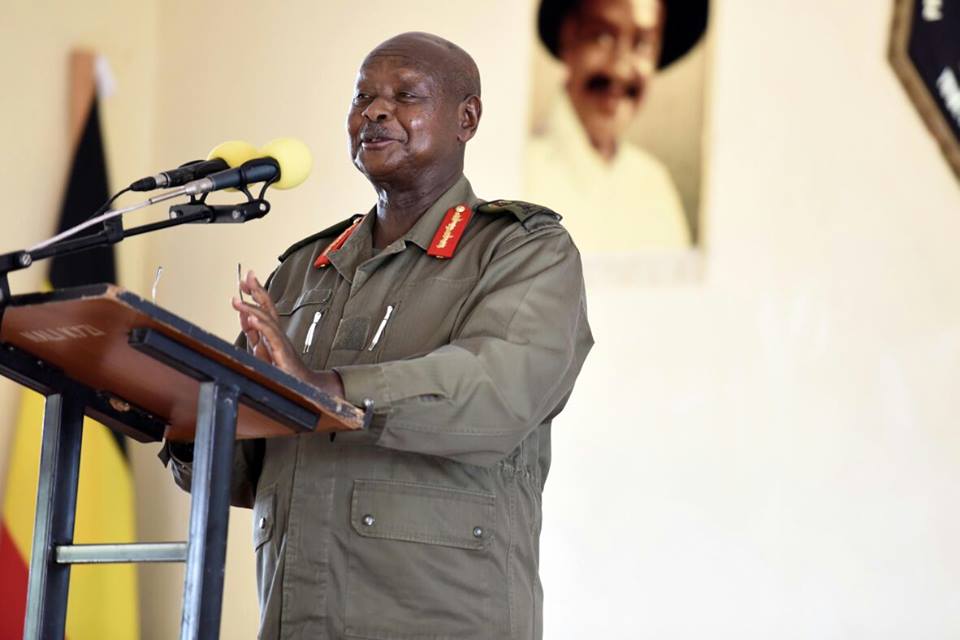
President Yoweri Kaguta Museveni has said companies that sold goods to the government of South Sudan and have not been paid will be considered for a bailout.
Museveni told Uganda’s Political Leadership Retreat at the National Leadership Institute (NALI), Kyankwanzi that these companies require government intervention because they are exporting and bringing money into the country’s economy. Most of these companies were not paid after war broke out in Juba.
Commenting on the reported story of companies that appealed for bailout due to debts, Museveni said that together with the exporters to South Sudan, companies that sold goods to ministries and have not been paid, deserve to be supported. “It’s not right for ministries to take goods they can’t pay for but we shall address that,” Museveni said.
Museveni however ruled out any support for struggling companies that deal in importing goods to Uganda. “These I would not care much about but I have learnt that some banks unfairly grab their property and we need to look into this injustice of these banks and stop it,” said Museveni.
Museveni explains bailout to companies
Museveni broke down the categories of the companies to be bailed out as those that sold goods to the government of South Sudan and were never paid, the second category is of companies that sold to government of Uganda and were never paid while the third category are those companies whose property is about to be grabbed by commercial banks because of the lenders unscrupulousness.
Museveni defended his move saying, “ The companies that exported to the government of South Sudan were bringing money to the national coffers and employ Ugandans but lacked backing like is the case in other countries which offer export credit guarantee to exporters.” On the second lot Museveni said, “ Some companies sold to government of Uganda and were not paid. These will also be paid because they supplied government.”
On the third category Museveni attacked commercial banks for conducting unscrupulous business towards some companies. “We shall come in not much so in the sense of money but to make sure they get justice that somebody should not use the banking laws to grab our people`s property unfairly.”
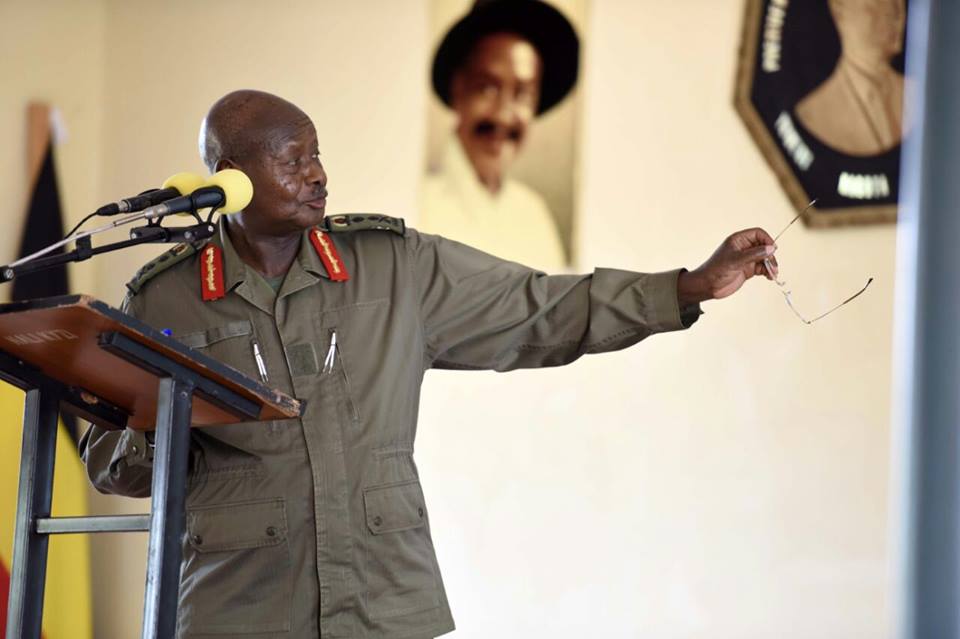
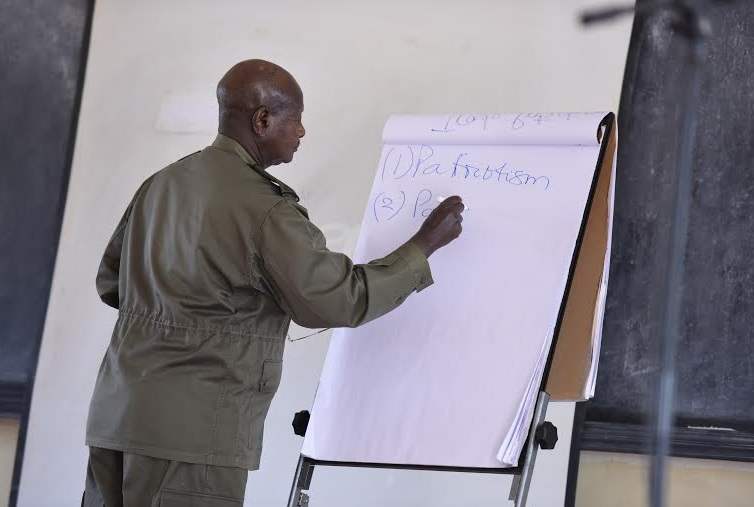
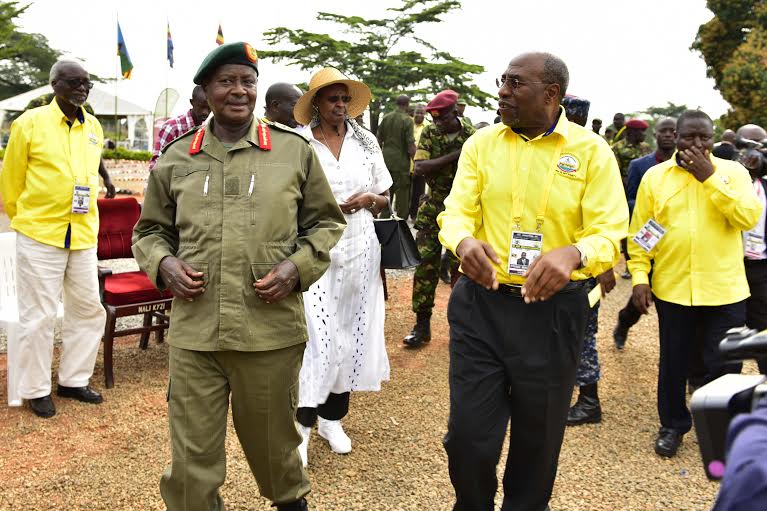
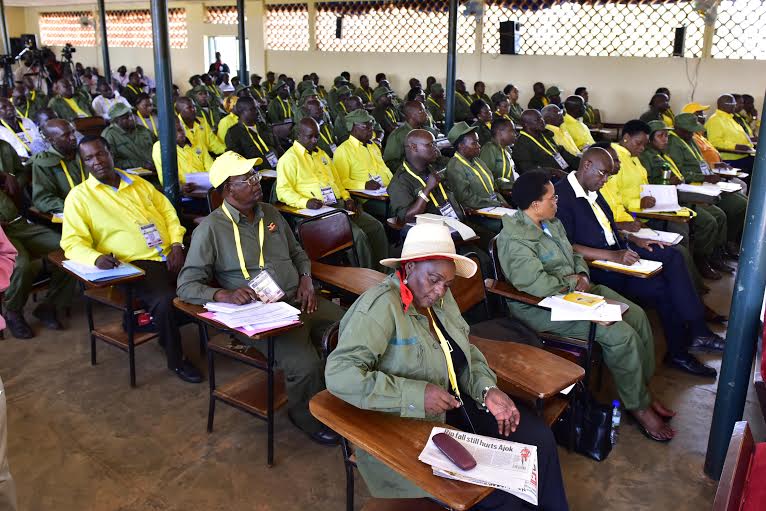
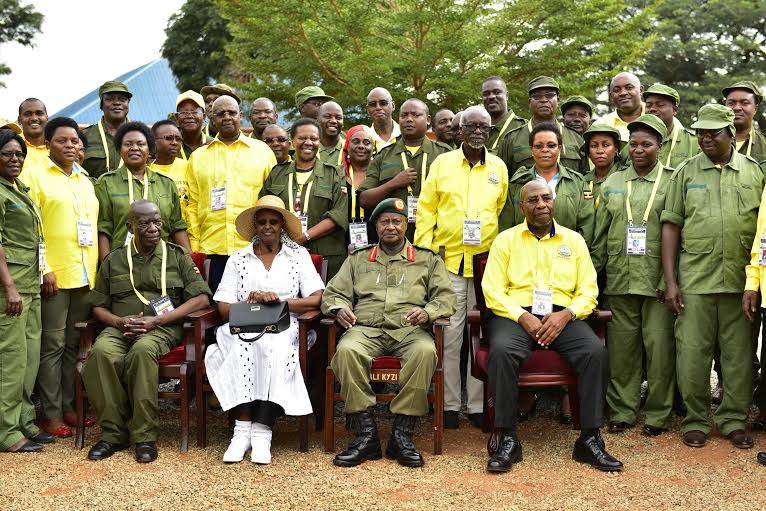
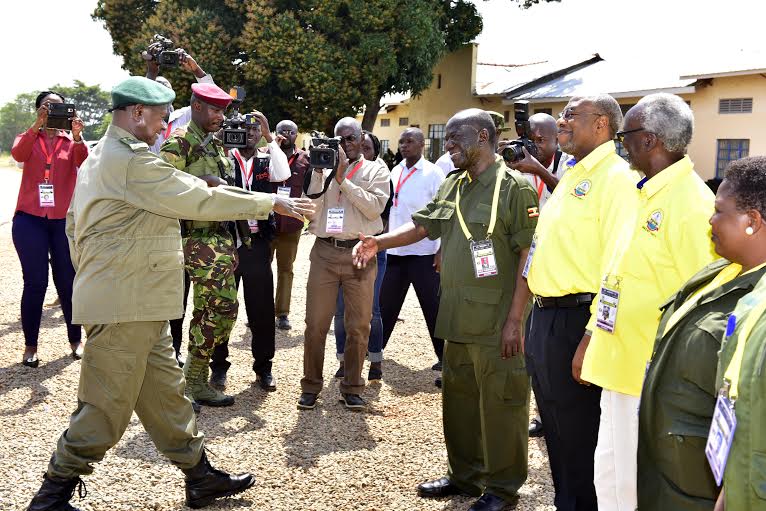
Museveni also talked tough on Chinese and Indian businesses involved in retail trade, saying that should be left for locals, and they rather invest in manufacturing.
The president made the remarks as he opened the week long leadership retreat that brings together the NRM Central Executive Committee, cabinet and Permanent Secretaries to deliberate on how to re-focus on the NRM ideological orientation.
Museveni took the leaders back to history, from early human civilization, theories of Karl Marx and the French revolution before thrusting them to the core principle of the NRM government, the social economic transformation and service delivery to the people.
Museveni directs on Indian, Chinese business
Museveni said Uganda must export more to the EU, to the USA, to China, to India, to the UAE, to Russia, to Turkey and Central Asia, to Japan and the Far East.
“It is not correct to support the prosperity of others by massively importing their products (goods and services) while they do not support our prosperity through them importing our goods and services,” he said.
He directed the Minister of Trade to regulate businesses owned by Chinese and Indians
“It is not correct for the regulators not to take action against the Chinese and Indian retailers who unfairly compete against our retailers. Those foreigners should not operate at that terminal level. They should be re-directed to manufacturing in particular and other areas like construction. Retailing should be preserved for the Ugandans or, possibly, the other African immigrants as well,” he said.
Uganda welcomes refugees
Museveni said Uganda accepts refugees as part of solidarity with their African brothers and sisters. Uganda is currently host to close to a million refugees with over 207,000 fro DR Congo, 250,000 from South Sudan, 36,000 from Somalia, 21, 000 from Sudan, 39,000 from Burundi and about 17,000 from Rwanda.
“In some countries they don’t allow refugees, we do this because this is our ideology. I don’t find difficulty in accepting any refugee from any African country. I don’t believe those those borders should be there.”
He said Uganda caring for African refugees is not just charity, but is also good strategy.
“Our Banyarwanda comrades stayed here as refugees for 34 years (1960-1994). We gave them all the support we could afford. When they gained ascendance in Rwanda, they opened up that country for interaction, including trade, with East Africa,” he said.
He revealed that Uganda exports $263 million worth of goods and services to Rwanda. Rwanda, in turn, is exporting $78 million worth of goods to Uganda. Through Rwanda Airlines, Uganda is currently contributing about $ 24.1 million to the prosperity of the people of Rwanda, he added.
South Sudan, before the outbreak of the conflict in 2013, was contributing $ 700 million per annum (exports and remittances) to the prosperity of the people of Uganda.
“You recently witnessed the exodus of 40,000 plus Ugandans that came back from South Sudan on account of the present conflict there. What were they doing there? Looking for prosperity. Therefore, Ugandans should know that unity within Uganda and Pan-Africanism in the whole of Africa are not mere acts of solidarity but are also investments to create a better framework for the prosperity of all Africans.”
FULL ADDRESS
MUSEVENI: Refocusing on the Nrm Kyankwanzi 27 July 2016 by The Independent Magazine on Scribd
****
editor@independent.co.ug
 The Independent Uganda: You get the Truth we Pay the Price
The Independent Uganda: You get the Truth we Pay the Price



